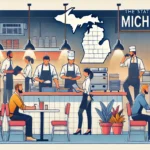One of the most important things to do when you are considering buying a restaurant is to deeply reflect on the reasons that make you want to go into the hospitality industry, and own and/or operate a restaurant. This is not a decision that should be made lightly as the competitive nature of the restaurant hospitality industry will impact your life, both financially and personally. Take the time to not only formulate a business plan but determine what the necessary steps and strategies are and how they will need to be executed to put you in the best position possible.
While it is easy to focus on financials and things that you are going to be tasked with handling, taking the time to understand your motivations, and how taking on a business venture like this will impact your lifestyle. Knowing the factors and criteria will help you better align yourself with realistic options and expectations.
Doing research and seeking advice from qualified, experienced professionals is important. But, initially, there are some basic things you can decide to determine which options are best for you or if you are even truly ready to take on buying a restaurant.
Do you have experience in the Restaurant Industry?
How much and what kind do you have? Maybe you own and operate other businesses? Or, perhaps you have had experience working in restaurants or bars? Depending on how little or much you already know about the industry will be a tell-tale sign of whether or not you know exactly what you want, or don’t want, or if you will need to hire a consultant to help guide you through buying a restaurant.
Without prior experience in the hospitality industry or from managing another type of business venture, the long hours, demands of customers, and management of staff could be an arduous task. The restaurant industry comes with its own unique set of challenges, chief among these is the employee retention rate. One of the largest impacts of the COVID-19 Pandemic has been the loss of skilled laborers within the hospitality industry, especially in restaurants. Many skilled managers, bartenders, servers, and professional cooks and chefs sought employment elsewhere while the industry was shuttered. Hiring and retaining skilled employees for your restaurant or bar will be paramount to its success.
Types of Restaurant Concepts
Do you have the availability and desire to have an establishment that caters more to nightlife? Do you want something that closes at 10 or 11 PM? Do you have a family to consider? All of these things will factor in when you are deciding which type of concept you want your establishment to be. Is there a certain type of restaurant you are interested in buying or establishing? Pizzerias, sports bars, franchises, and upscale/fine dining restaurants all function differently. Keep in mind, what type of customers would attend these restaurants and who you want your customers to be.
Will your establishment offer alcohol? Net profits go up or down based on the amount that is served. Local and state restrictions on liquor licenses and other regulatory requirements will dictate different aspects of your business from availability, hours of operation, type of alcohol that can be served, and more. If you have been convicted of a felony or arrested in the State of Michigan, it is highly unlikely the Michigan Liquor Control Commission will grant you a liquor license for your establishment, especially if the offense is alcohol-related. A prior arrest record does not bar you from applying for a liquor license but an investigator from the commission will ask you to divulge this information and licenses are granted on a case-by-case basis.
Will you need a Liquor License?
Depending on the type of restaurant concept you will be established, will dictate which type of liquor license you will need. The most common types are retailer on-premises licenses:
- Tavern
- Class C
- Brewpub
- Club
For the most part, brick-and-mortar restaurants can be categorized into five groups:
Quick Service Restaurants (QSRs/Fast Food) – The focus is on convenience and affordability where the food is meant to be eaten more so in a car rather than inside the establishment at a table. The menu tends to be limited with moderate profit margins and costs are easier to maintain. These types of businesses rarely or do not offer alcoholic beverages.
Small Plates / Cafes – Offer appetizers and small plate options for customers accompanied by a variety of beverage choices that can range from smoothies, coffee, teas, or wine/beer. Depending on the concept, casual to high-end, profits will vary. Staffing, food prep, and location size are limited.
Casual Dining – Increase in staff size, offers sit-down table service and typically a family-friendly atmosphere. A step above fast food, but still relatively convenient in accessibility and availability. More variety with cuisine types and dining experiences. Higher price points lend to higher profits due to alcohol sales or other specialty items.
Fine Dining – Unique and formalized themes, high-end atmosphere and service, and selection of food and alcohol are curated and tailored to accommodate the customer’s dining experience. Higher profile presence and reputation. Price point and profits will be higher.
Lounges and Bars – Attention on creating a social space for patrons with primary alcohol selection with a variety of food selection, depending on the theme and intended experience you want your customers to have. Building repeat business, hosting events, and creating community are components of making this type of business successful. High level of alcohol profits.
The Law Offices of Barton Morris have experienced and professional attorneys that can help you obtain a liquor license for your restaurant or bar, and personal relationships with members of the Michigan Liquor Control Commission to provide you with insight and knowledge when considering buying a restaurant.
Location
Searching for restaurants to purchase can be easily located, for the most part, online through various listing platforms or specialty brokerages. Specialty commercial agents or restaurant brokers are the best bet since they are experienced within the industry. These professionals know the intricacies involved when it comes to dealing with leases, zoning/permits, licensing, and other regulatory requirements. And are usually better networked and are likely to be privy to off-market listings and have considerable inside knowledge.
Where would be the ideal location for your establishment that would attract the ideal type and number of customers you need to make your business thrive and be a success? How far is this ideal location from where you live? How does the distance and frequency of travel affect your commute, or would you be willing to relocate to the right location? If the restaurant is already operating, the occupancy terms are important. The length and value of the lease regarding the percentage of the total sales should be considered. There are some subjective factors involved, of course, but in general, the rent + Common Area Maintenance (CAM) and other occupancy expenses such as taxes and insurance, combined should be within 8% – 10%.
Financial Situation
Another thing to consider when trying to decide on buying a restaurant is if you need immediate income or not. Or if you have some time to earn and build income over a period of time. It can take on average up to two years to turn a place around. There are a few different options that you can consider: purchase an operating restaurant, turn an existing restaurant around, purchase a franchise, purchase a closed restaurant, or purchase a new space that needs to be built out.
Additionally, you will need to consider if you want to purchase a space and convert it into an operating restaurant, purchase the business only and lease space, or purchase both the restaurant business and the real estate.
This is a lot to undertake. Once you have determined all the costs that will be incurred, before looking for properties and businesses to purchase, how will the business endeavor be financed? Will there be loans and/or investors? Will there be seller financing available with a down payment? Will it be self-funded?
Entering the restaurant industry can be considered a risky business venture as the National Restaurant Association estimates a 30% failure rate, or in other words, one in three restaurants will not survive their first year. To learn the reasons why the restaurant failure rate is so high, ToastTab provides an in-depth look at some of the reasons restaurants close.
Finding the Right Place
Searching for restaurants to purchase can be easily located, for the most part, online through various listing platforms or specialty brokerages. Specialty commercial agents or restaurant brokers are the best resource to find the right place. Since, they are experienced with the industry and the special intricacies involved in dealing with the requirements of the industry. These include leases, zoning/permits, licensing, and other regulatory requirements and they are usually better networked and are likely to be privy to off-market listings and insider knowledge.
Making the Offer
There are several strategic ways to negotiate the best deal when buying a restaurant. Whether it is cash at closing, or amounts being paid in the future based on sales, lender financing, or other methods. All of these options should be explored to determine which one is best suited for the needs of your establishment. Other things such as employee training/transitions and other local regulatory requirements such as dealing with a liquor license, all need to be outlined in your offer. Additional details such as deposits with landlords and vendors, cash on hand, inventory payment, and transfer fees also need to be accounted for.
Diligence
Whatever the set time period that has been agreed upon by the parties, it is of the utmost importance to be thorough as you examine the various aspects of the business you are purchasing. Setting up a meeting with the Seller is always recommended so you can do a walk-through of the business. Verification of the business’s financial statements and valuation along with equipment inspection is standard during this diligence period. Sales tax filings, tax returns, payroll, schedules, leases, POS reports, and other activities are just some examples of things that a buyer will be interested in.
Evaluating Valuation
There are many components when it comes to the valuation of a restaurant. Buyers will want to become familiar with gross sales, net sales, food costs, occupancy cost, profit margin, labor costs, Seller Discretionary Earnings (SDE), and Earnings Before Interest, Taxes, Depreciation, and Amortization (EBITDA). Our business brokerage professionals can help you understand these different aspects and navigate you through the purchase or sale of your restaurant business.





